Institutions play a fundamental, decisive and motivating role in promoting the development of each country. At the 8th session of the 15th National Assembly , General Secretary To Lam emphasized the three biggest bottlenecks today: Institutions, infrastructure and human resources; institutions are the "bottleneck of bottlenecks".
In particular, General Secretary To Lam pointed out that the quality of law-making has not met practical requirements; some newly issued laws have had to be amended; regulations are not really synchronous and overlap; many regulations still cause difficulties, hinder implementation, cause loss and waste of resources; and have not created a truly favorable environment to attract resources from domestic and foreign investors.
Originates from unbinding thinking
If a country wants to enter an era of development and prosperity, it must remove and clear bottlenecks, especially institutions.
Currently, Vietnam is developing a market economy , perfecting the rule of law state, promoting socialist democracy under the leadership of the Party; shifting from state management to national governance; strongly applying information technology, digital transformation, using artificial intelligence and digital technologies in all activities of social life; and strongly developing international integration.
Besides, the Party and State continue to promote the prevention and fight against corruption, negativity and waste.
This context poses challenges but is also an opportunity for us to perfect institutions, clear institutional bottlenecks, and create a foundation for implementing the Party's guidelines, policies, and goals for national development.
Therefore, it is necessary to study institutional bottlenecks and propose breakthrough solutions to clear them for development in the new era.
The great achievements in developing our country's market economy over the past 40 years of renovation all come from freeing up thinking and expanding awareness to innovate institutions.
The ideology running through these institutional innovations is the Party's viewpoints, policies, and guidelines for Innovation that have been proposed and implemented since the 6th Congress until now.
“The shirt is too tight”
However, the current national development process, from thinking to institutional improvement, is still slow to innovate, not suitable to the requirements and context of the country and the times, and is becoming a huge obstacle, creating bottlenecks and hindering development.
This is most evident in the field of law-making. Specifically, although the legal system has been focused on building and perfecting, it is still complicated, unstable, of low quality, and short-lived; many regulations overlap and contradict each other, and need to be regularly amended and supplemented; creating many legal and policy risk traps, and are easily criminalized during implementation.
In addition, the slow-changing mechanisms and policies in the legal system have created a "tight shirt" and put all socio-economic fields in a "narrow space" that hinders development.
To solve this problem, the “ask-give” mechanism is born again. Localities have to find every way to ask the Central Government for special policies for development. But when there are too many special policies, they will no longer be special.
In addition, the legal regulations on the organization of the apparatus and the civil service and civil servant regime also have many bottlenecks, making it difficult to implement, especially in the field of decentralization and delegation of power between the Government and local authorities. Although the decentralization and delegation of power between the Government and local authorities have been implemented, there are still many procedures, consultations, consensus, etc.
Over the terms, although the organizational apparatus has been streamlined, it is still half-hearted, lacking synchronization, overallity and comprehensiveness, cumbersome, overlapping, and with many intermediate levels.
Although the Government's organizational structure has been streamlined, some issues have not been renewed. The local government model has not been truly renewed in terms of organization and operation. There is no unified model of local government suitable to the characteristics of urban areas, rural areas and islands. The role of self-management and self-responsibility of local governments has not been promoted, and they still follow the centralized model of the centralized planning mechanism.
The civil service and civil servant system has not yet completely escaped the career system. Recruitment, appointment, planning, etc. still heavily rely on qualifications, age, and seniority.
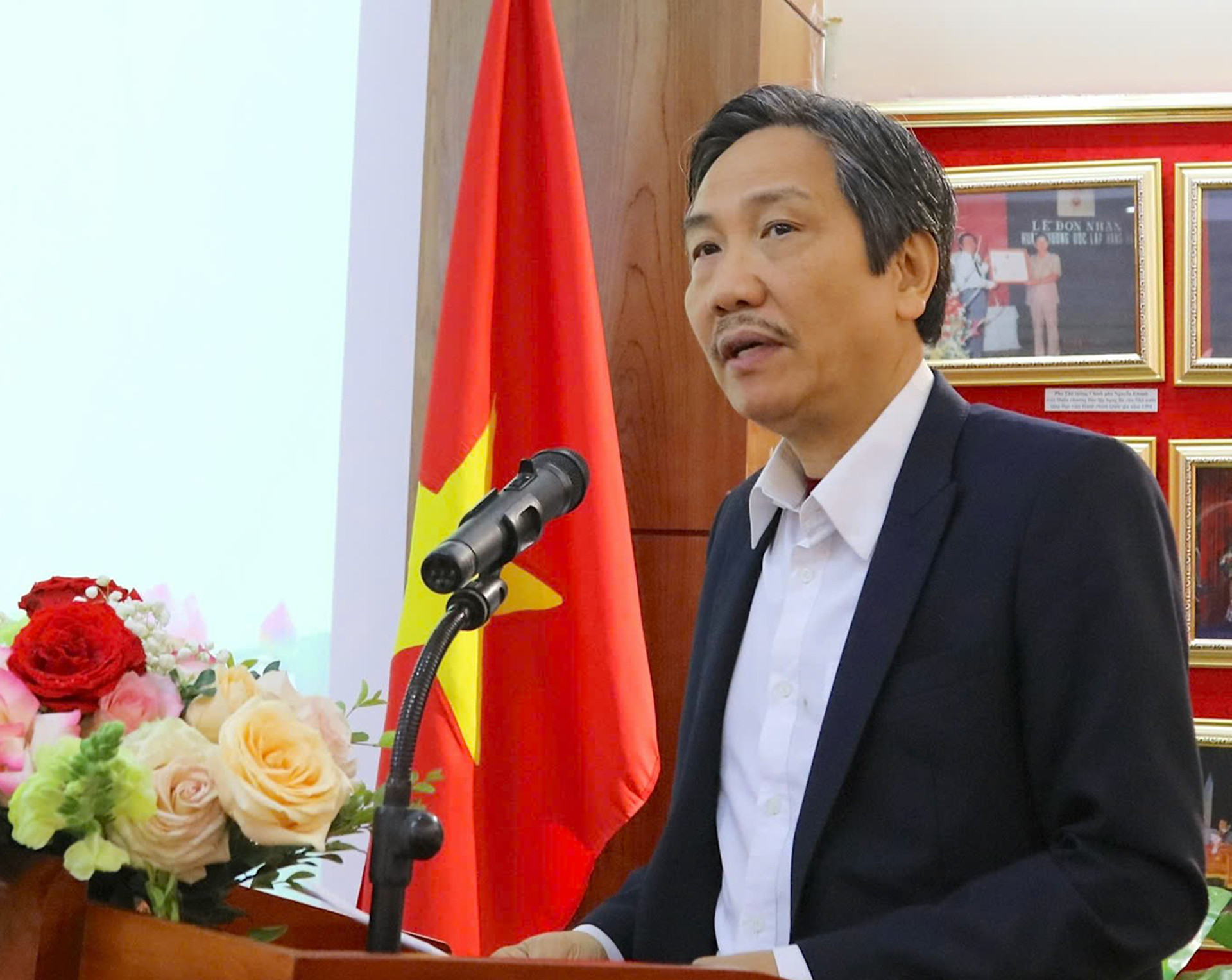
Dr. Tran Anh Tuan speaks at the workshop "Institutional bottlenecks and breakthrough solutions for development" on February 11. Photo: TH
The assessment has not yet distinguished the competent from the incompetent. The transition from the professional civil service regime to the employment civil service regime has not really been and is still struggling. The list of job positions has not really been linked to the functions and tasks of each organization, and is not really the basis for a breakthrough in innovation in the management of cadres and civil servants.
The mindset of “lifetime” recruitment associated with the establishment is still “strong” in public service management, not yet adapted to the market mechanism. Civil service standards are still “in full bloom”, every agency is assigned to set standards, becoming very complicated, not ensuring consistency. From there, the quality of the civil service staff is difficult to improve and meet public service requirements.
The reason for the above-mentioned bottlenecks in the legal system is that thinking and perception are slow to change compared to practical requirements.
As a leader, no matter what position you hold, you must have a doctrine. To have a doctrine, you must change your thinking to suit practical requirements. Correct thinking leads to correct action. This is true in any field.
In the current context, the mindset of “sitting still”, not changing, or changing half-heartedly, piecemeal, and without a system, national management and administration still follows the “old path”, is still “old wine in new bottles”, still being willful and dogmatic. It is very easy to fall into the situation: solving one bottleneck only to create another.
Entering the new era, thinking must also "strive"
To build "doctrines" for development in each industry and field, especially in the field of law-making, in accordance with the Party's policy, thinking must change, we must "strive" in the direction of "bringing life into law" rather than "bringing law into life" as before.
Changing thinking, the first thing is to eliminate all traces of previous centralized planning thinking. to switch to market thinking, thinking of perfecting the socialist rule of law state.
Although state management in many fields has basically undergone many innovations, consistent with the requirements of market economic development, many old thinking imprints that are no longer suitable still exist, creating bottlenecks that are very difficult to clear.
The legal system still has bottlenecks in building a civil service system, with the human factor. Accordingly, we must truly consider the human factor as the center, the root. Because the construction of laws, the organization of the apparatus and the civil service system are all proposed, advised and implemented by people.
Administrative reform has been going on for more than 30 years now (administrative reform has been carried out since the early 1990s), but it still takes “administrative procedures” as a breakthrough, without really paying attention to the human factor. When there is a lack of breakthrough thinking, it is impossible to come up with breakthrough solutions to have a modern, effective, efficient administration that meets the satisfaction of the people.
As for the Government, we have not yet fully recognized the role of the Government in the market economy, so we cannot completely break away from the thinking: "The Government can do everything", "The Government takes care of every little thing " . From there, design the organizational structure of the Government accordingly in the direction of "Small Government, Big Society"; "The Government steers the boat without rowing it".
Local matters must be decided, implemented and held responsible by the local authorities. Strengthen decentralization and clearly define the authority between the central government and local authorities.
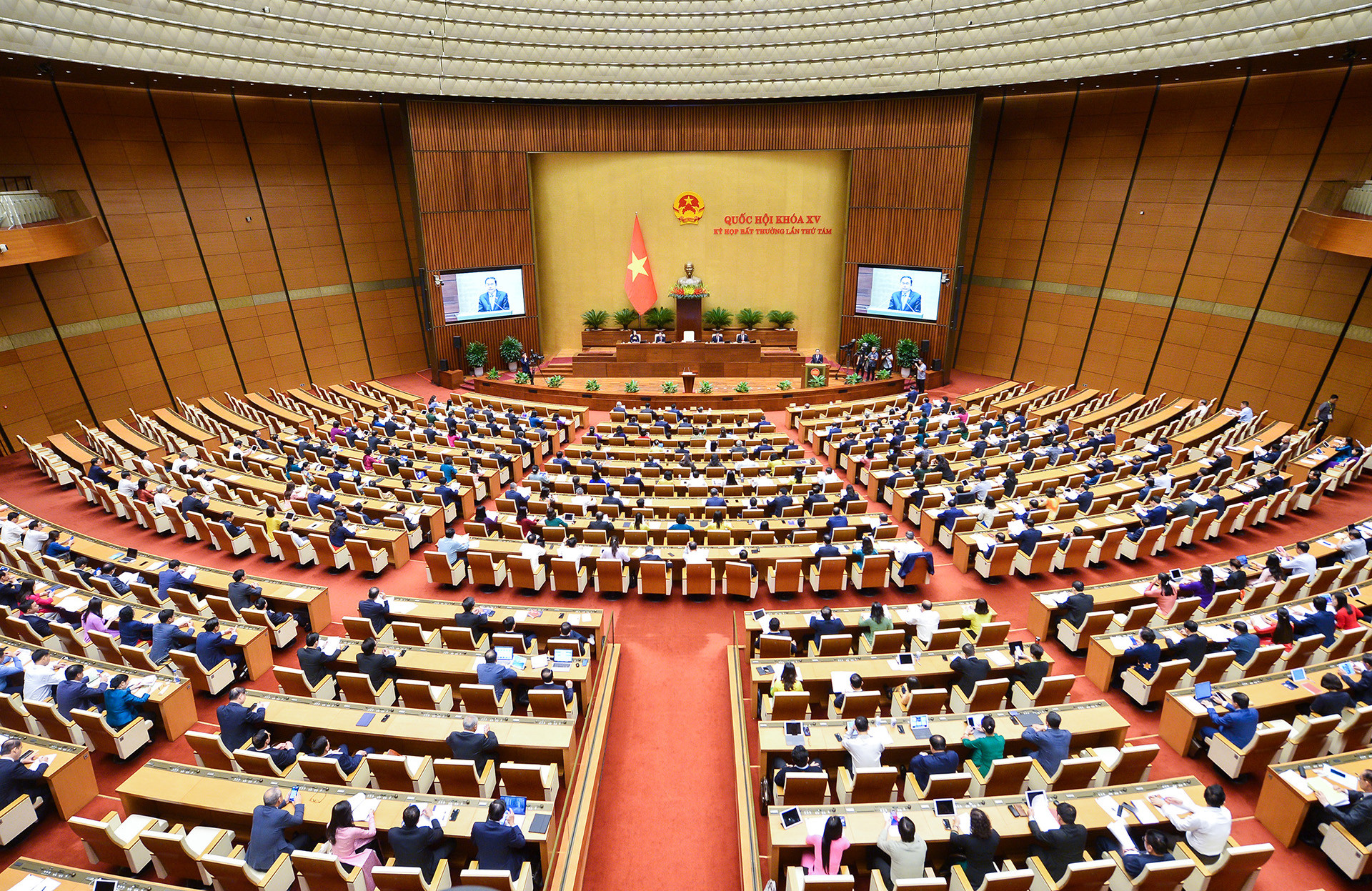
The 9th extraordinary session of the National Assembly will take place from February 12-19 to consider and approve many contents related to the improvement of the organization, apparatus and personnel of the Government and the National Assembly. Photo: National Assembly
In national governance, the legal system has not yet reflected the ideology and incorporated regulations to truly promote the strength and resources of private enterprises, social organizations, professional societies, and non-governmental organizations in participating in innovation, creativity, policy making, law making, and implementation of public services.
Therefore, the Government must be bolder in transferring public services to non-state organizations. This is also implementing the trend of "Small but strong Government".
Therefore, we need breakthrough solutions to "open up" the way of building laws for the country to develop, in order to achieve the goals set by General Secretary To Lam: Streamlined - Compact - Strong - Effective - Effective - Efficient.
The 9th extraordinary session of the 15th National Assembly, which opened today, will pass four draft laws: the amended Law on Government Organization, the amended Law on Local Government Organization, the amended Law on National Assembly Organization, and the amended Law on Promulgation of Legal Documents.
Public opinion believes that the law-making process will have many innovations in terms of processes, procedures, implementation methods, etc. to improve quality, "lifespan" and require very little amendment or supplementation.
At the same time, the issue of decentralization and delegation between the National Assembly and the Government with local authorities will be regulated more fully and clearly. In particular, local matters will be assigned to the local authorities to decide, implement and take responsibility.
This can be considered the beginning of removing and clearing institutional bottlenecks - "the bottleneck of bottlenecks", contributing to creating the premise for bringing our country into an era of development and prosperity.
Vietnamnet.vn
Source: https://vietnamnet.vn/ky-hop-bat-thuong-khoi-dau-thao-go-diem-nghen-cua-diem-nghen-2370518.html


![[Photo] General Secretary To Lam receives US Ambassador to Vietnam Marc Knapper](https://vphoto.vietnam.vn/thumb/1200x675/vietnam/resource/IMAGE/2025/9/29/c8fd0761aa184da7814aee57d87c49b3)
![[Photo] National Assembly Chairman Tran Thanh Man chairs the 8th Conference of full-time National Assembly deputies](https://vphoto.vietnam.vn/thumb/1200x675/vietnam/resource/IMAGE/2025/9/29/2c21459bc38d44ffaacd679ab9a0477c)
![[Photo] Many streets in Hanoi were flooded due to the effects of storm Bualoi](https://vphoto.vietnam.vn/thumb/1200x675/vietnam/resource/IMAGE/2025/9/29/18b658aa0fa2495c927ade4bbe0096df)
![[Photo] General Secretary To Lam chairs the meeting of the Central Steering Committee on preventing and combating corruption, waste and negativity](https://vphoto.vietnam.vn/thumb/1200x675/vietnam/resource/IMAGE/2025/9/29/fb2a8712315d4213a16322588c57b975)
![[Photo] General Secretary To Lam attends the ceremony to celebrate the 80th anniversary of the post and telecommunications sector and the 66th anniversary of the science and technology sector.](https://vphoto.vietnam.vn/thumb/1200x675/vietnam/resource/IMAGE/2025/9/29/8e86b39b8fe44121a2b14a031f4cef46)







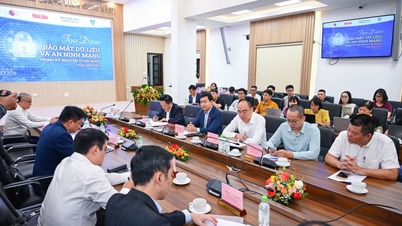
















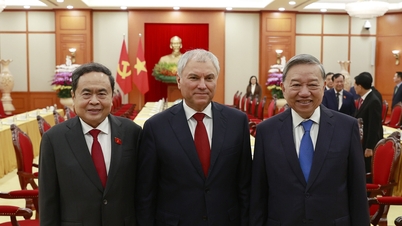


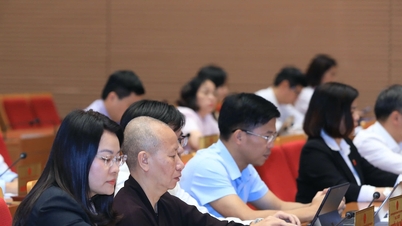
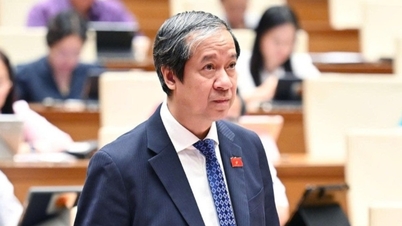


















































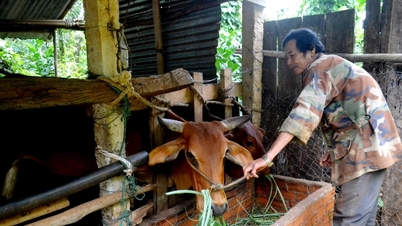
















Comment (0)